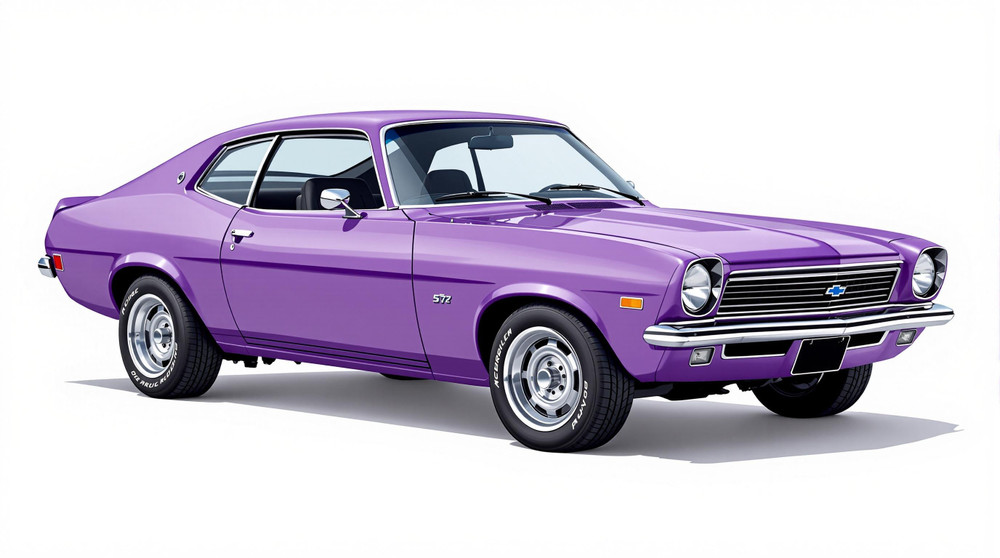Image of 1972 Chevrolet Vega, Note: These illustrations use artistic license and may differ from actual historical models.
Performance Metrics
Fundamental Metrics
Emotional Appeal
MMP Rating
| Engine Specifications | |
|---|---|
| Engine Options: | 140 CID I4, 2300cc I4 |
| Displacement Range: | 140-2300cc |
| Horsepower Range: | 70-110 hp |
| Torque: | 100-120 lb-ft |
| Compression Ratio: | 8.0:1 (140 CID I4), 8.5:1 (2300cc I4) |
| Ignition System: | Electronic |
| Cooling System: | Liquid-cooled |
| Performance Specifications | |
| 0-60 Time: | 12-15 seconds |
| 1/4 Mile Time: | 18-20 seconds |
| Top Speed: | 100 mph |
| Transmission and Drive | |
| Drive Type: | RWD (Rear Wheel Drive) |
| Transmission Type: | 3-speed manual, 4-speed manual, 3-speed automatic |
| Fuel and Efficiency | |
| Fuel System Type: | Carburetor |
| MPG: | 20-25 mpg |
| Dimensions and Brakes | |
| Brakes: | Front disc, rear drum |
| Wheelbase: | 97.0 in |
| Weight: | 2,200-2,400 lbs |
Note: Specifications for classic cars are given to the best of our ability, considering the limited and variant data available.
1972 Chevrolet Vega: An Ambitious Compact with a Mixed Legacy
The 1972 Chevrolet Vega emerged as a symbol of American ingenuity, designed to tackle the rising demand for compact and fuel-efficient vehicles. Born from the drawing boards of General Motors, the Vega was an answer to the growing popularity of European and Japanese imports in the United States. With its sleek lines and innovative engineering, the Vega aimed to redefine the compact segment. A unique fact that might pique your interest: despite its later reputation, the Vega was initially celebrated, even earning Motor Trend's Car of the Year in 1971.
Design and Innovation
The exterior styling of the 1972 Chevrolet Vega was a breath of fresh air in the compact car market. Its long hood and short deck proportions gave it a sporty silhouette that stood out among its peers. The interior was surprisingly roomy for a compact car, though it was clear that some cost-cutting measures had been taken with material quality. Technologically, the Vega boasted an aluminum engine block without cylinder liners, a daring move that was both innovative and ultimately problematic. Color options ranged from vibrant hues like "Bright Yellow" to more subdued tones like "Antique White," with "Sunflower Yellow" being particularly popular among enthusiasts.
Body styles included a two-door hatchback, notchback, wagon, and panel delivery versions. The hatchback proved to be iconic and is often what people picture when they think of the Vega.
Historical Significance
The Chevrolet Vega's impact on automotive design was significant, particularly in its bold approach to engine construction and its attempt at creating a lightweight, fuel-efficient vehicle. However, it also became a cautionary tale due to reliability issues stemming from its engine design. The Vega's story is one of ambition meeting reality, influencing how manufacturers approached quality control and customer satisfaction in subsequent years.
Performance and Handling
Performance-wise, the 1972 Vega's standard engine produced modest figures, but when equipped with the optional GT package, it offered improved handling and power. The top speed hovered around the 100 mph mark with acceleration from 0-60 mph taking about 12 seconds. Handling was generally considered nimble for its class, but rough roads could unsettle the car due to its relatively basic suspension setup. Drivers often noted the distinct hum of its four-cylinder engine and found joy in its straightforward driving dynamics.
Ownership Experience
Vegas were used across the spectrum—from daily drivers to weekend show cars—and some even found their way onto racetracks in modified forms. Maintenance could be a mixed bag; while many parts were readily available due to high production numbers, some engine issues required specialized knowledge to address properly.
Fun Facts
A few fun facts about the 1972 Chevrolet Vega: There were limited-edition models like the "Millionth Vega" to celebrate production milestones. While not known for breaking speed records, it did set sales records for GM at launch. Criticisms often focused on rust issues and engine reliability problems that plagued many vehicles.
Collector's Information
Today, finding a 1972 Chevrolet Vega in good condition can be challenging as many succumbed to rust or were discarded due to mechanical failures. Estimates suggest that over two million Vegas were produced during its entire run; however, survivors are considerably fewer. In terms of value range for collectors, well-preserved or restored models can fetch anywhere from $5,000 to $20,000 depending on condition and originality—though these figures can fluctuate based on market interest.
Conclusion
The 1972 Chevrolet Vega is a classic example of American innovation with a bittersweet legacy. Its design and initial reception remind us of an era when automakers were willing to take risks in response to changing markets. Despite its flaws, for many classic car enthusiasts, the Vega holds a special place as a symbol of early '70s optimism in automotive design.
1972 Chevrolet Vega Catalog of Parts
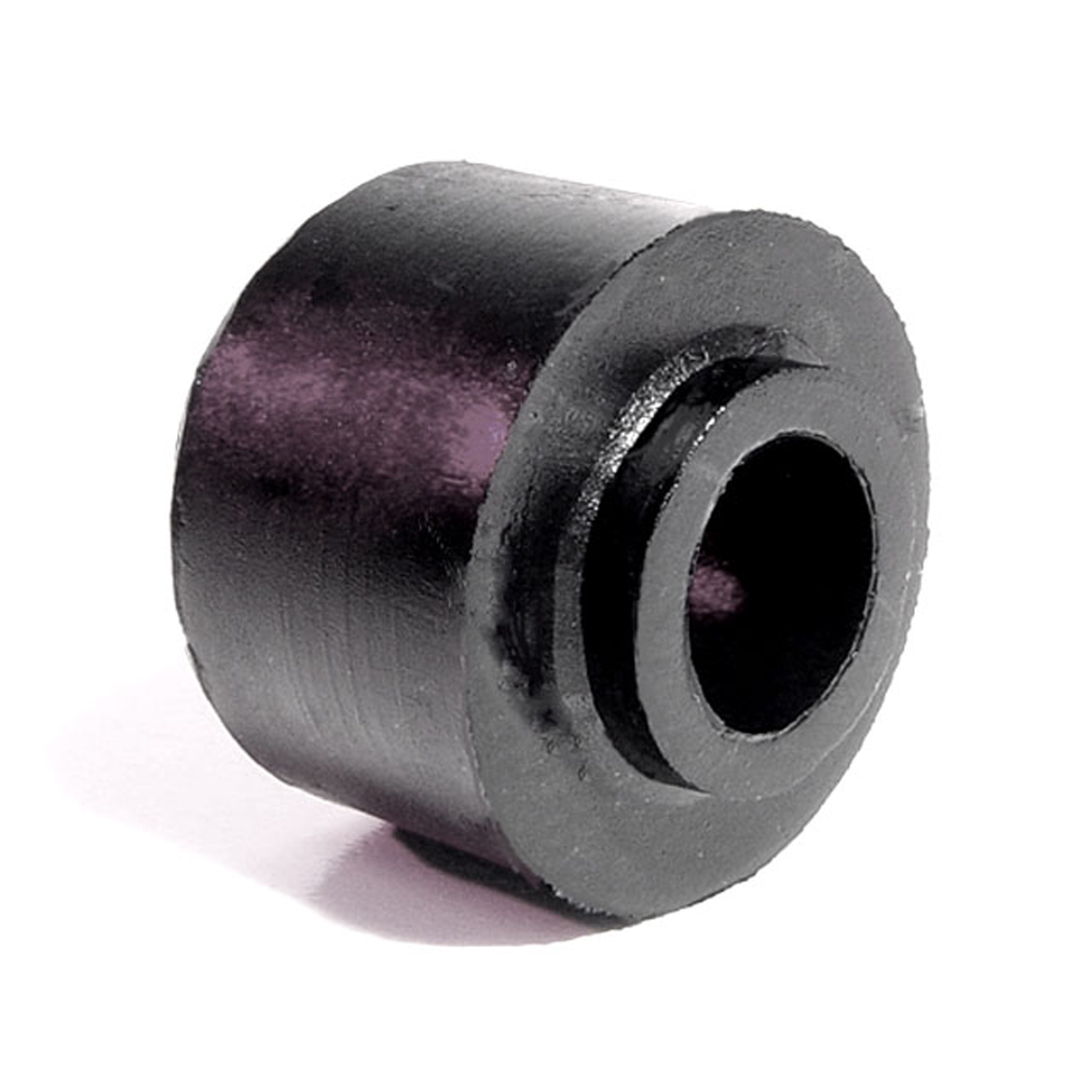 1972 Chevrolet Vega Shock Absorber Grommet. 1" bottom O.D., 3/4" high-BN 1Shock Absorber Grommet. 1" bottom O.D., 3/4" high., with 7/16" I.D. Each
1972 Chevrolet Vega Shock Absorber Grommet. 1" bottom O.D., 3/4" high-BN 1Shock Absorber Grommet. 1" bottom O.D., 3/4" high., with 7/16" I.D. Each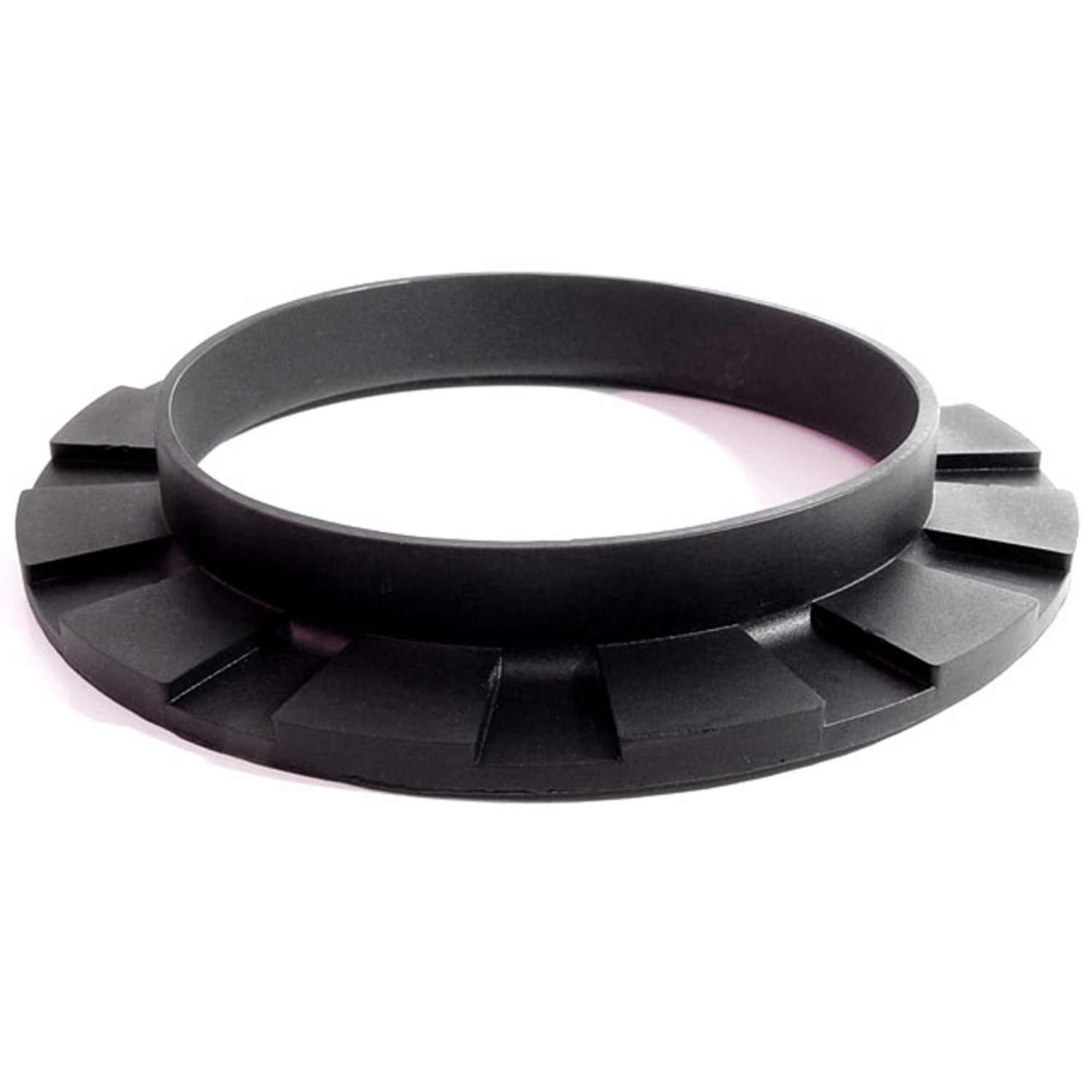 1972 Chevrolet Vega Front coil-spring insulator-BN 110Front coil-spring insulator. Fits '41-'60 Oldsmobile and '50-'83 GM passenger models. 5-3/8 in. OD x 3-3/4 in. ID x 3/4 in. high with 13/16 in. wide bottom flange 1/4" thick, 12 flutes. Each.
1972 Chevrolet Vega Front coil-spring insulator-BN 110Front coil-spring insulator. Fits '41-'60 Oldsmobile and '50-'83 GM passenger models. 5-3/8 in. OD x 3-3/4 in. ID x 3/4 in. high with 13/16 in. wide bottom flange 1/4" thick, 12 flutes. Each.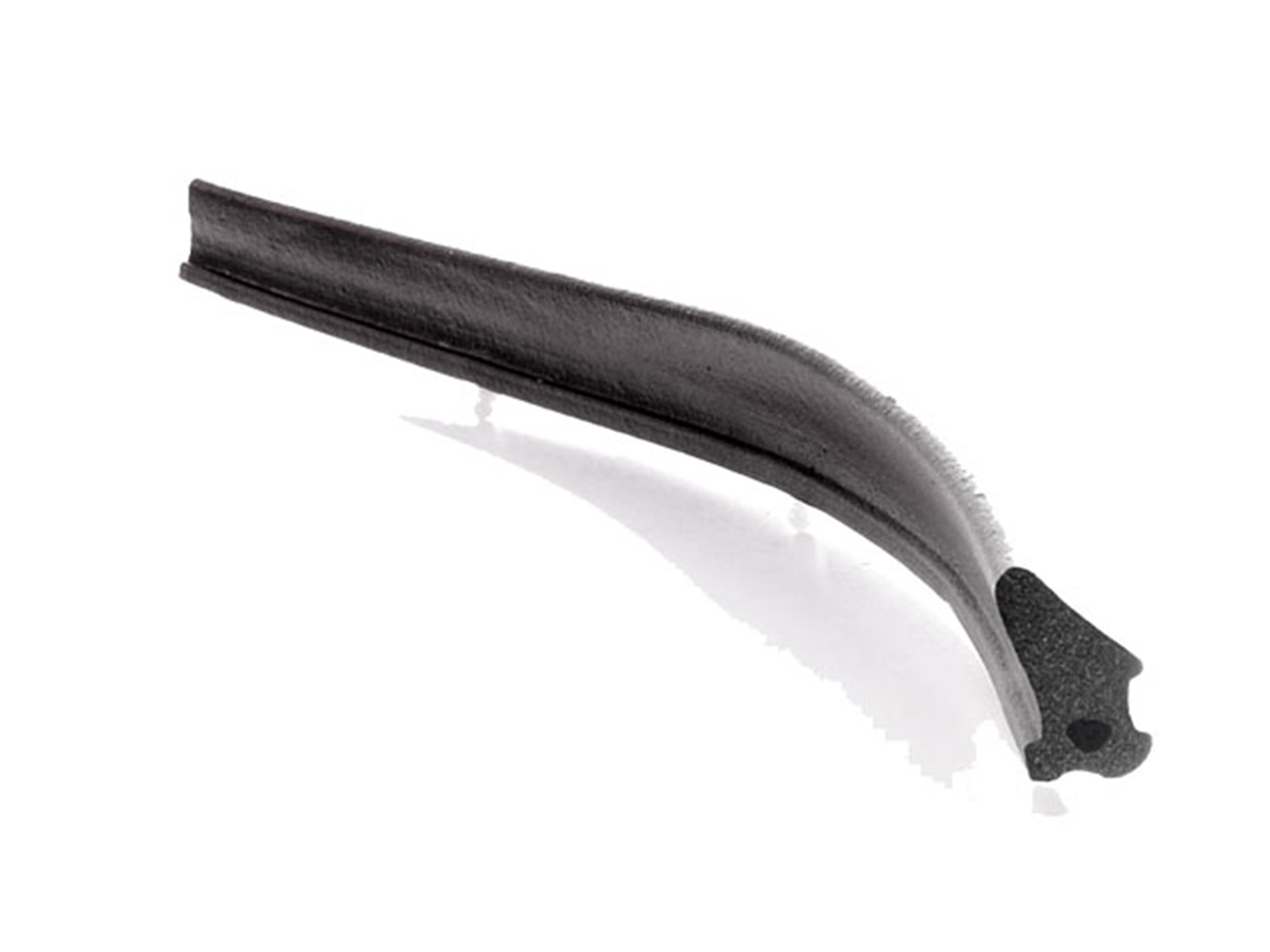 1972 Chevrolet Vega Door Side Seal-C/LP 40-KDoor Side Seal. Made of smooth skin sponge extrusion, with clips installed. (For seal without clips, see LP 40-K) Sold by the foot.
1972 Chevrolet Vega Door Side Seal-C/LP 40-KDoor Side Seal. Made of smooth skin sponge extrusion, with clips installed. (For seal without clips, see LP 40-K) Sold by the foot.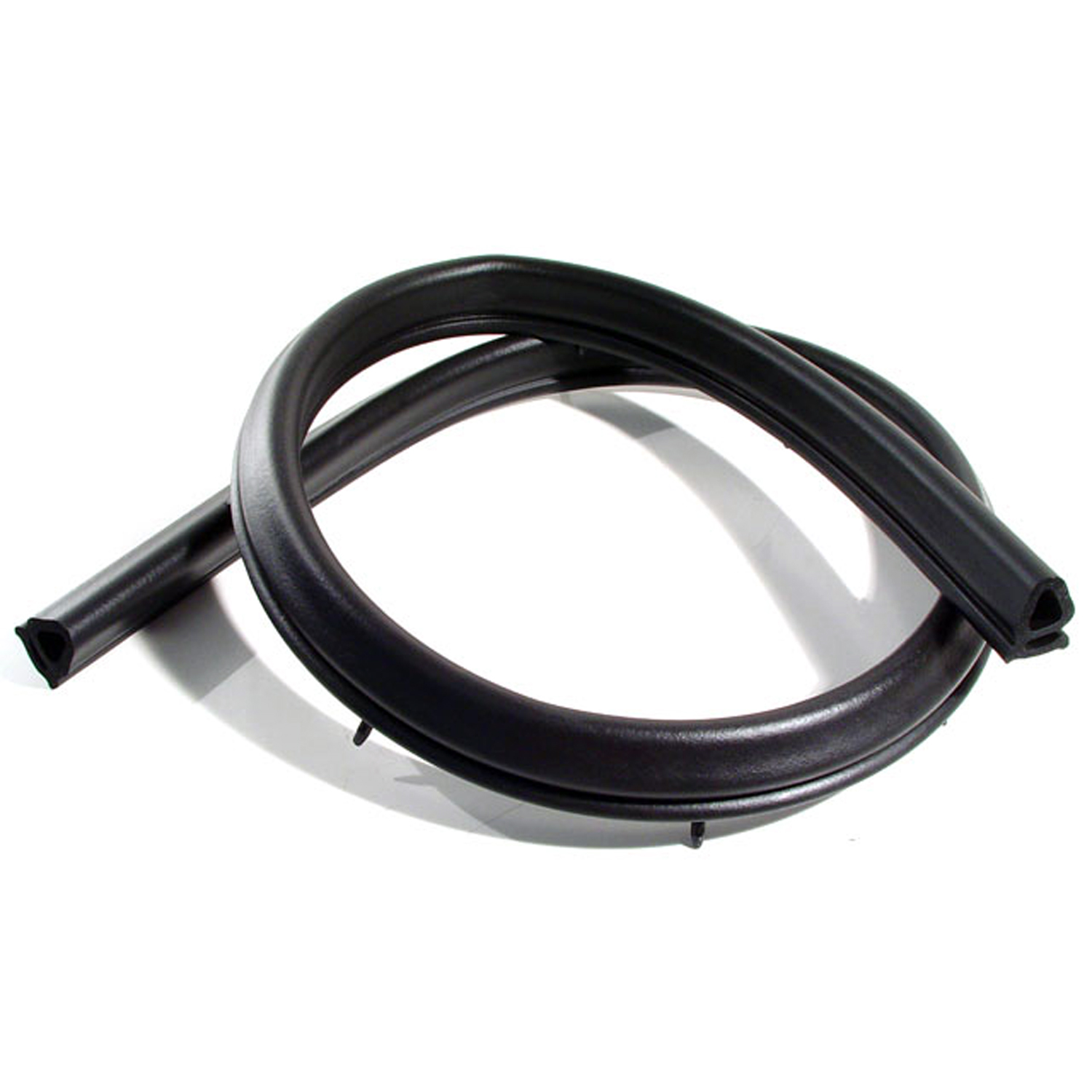 1972 Chevrolet Vega Hood to Cowl Seal, 71-80 GM H Body, Each-CS 13-HHood to Cowl Seal, 71-80 GM H Body, Each. Replaces OEM # 9829415. 50" Long. Comes with five mounting clips.
1972 Chevrolet Vega Hood to Cowl Seal, 71-80 GM H Body, Each-CS 13-HHood to Cowl Seal, 71-80 GM H Body, Each. Replaces OEM # 9829415. 50" Long. Comes with five mounting clips.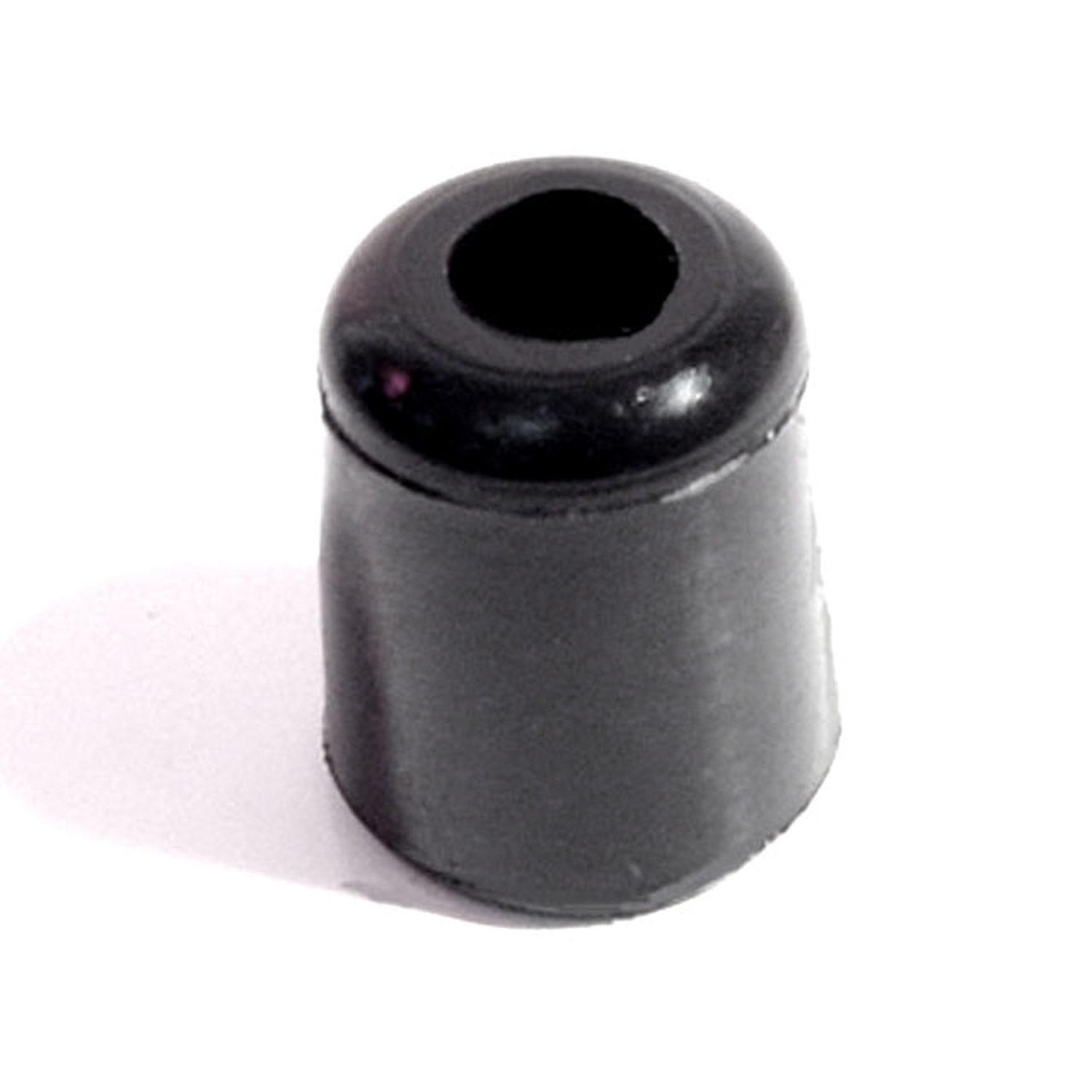 1972 Chevrolet Vega Seat Bumper, for Station Wagons. 1-3/16" high. Each-HF 28-ASeat Bumper, for Station Wagons. 1-3/16" high. Each
1972 Chevrolet Vega Seat Bumper, for Station Wagons. 1-3/16" high. Each-HF 28-ASeat Bumper, for Station Wagons. 1-3/16" high. Each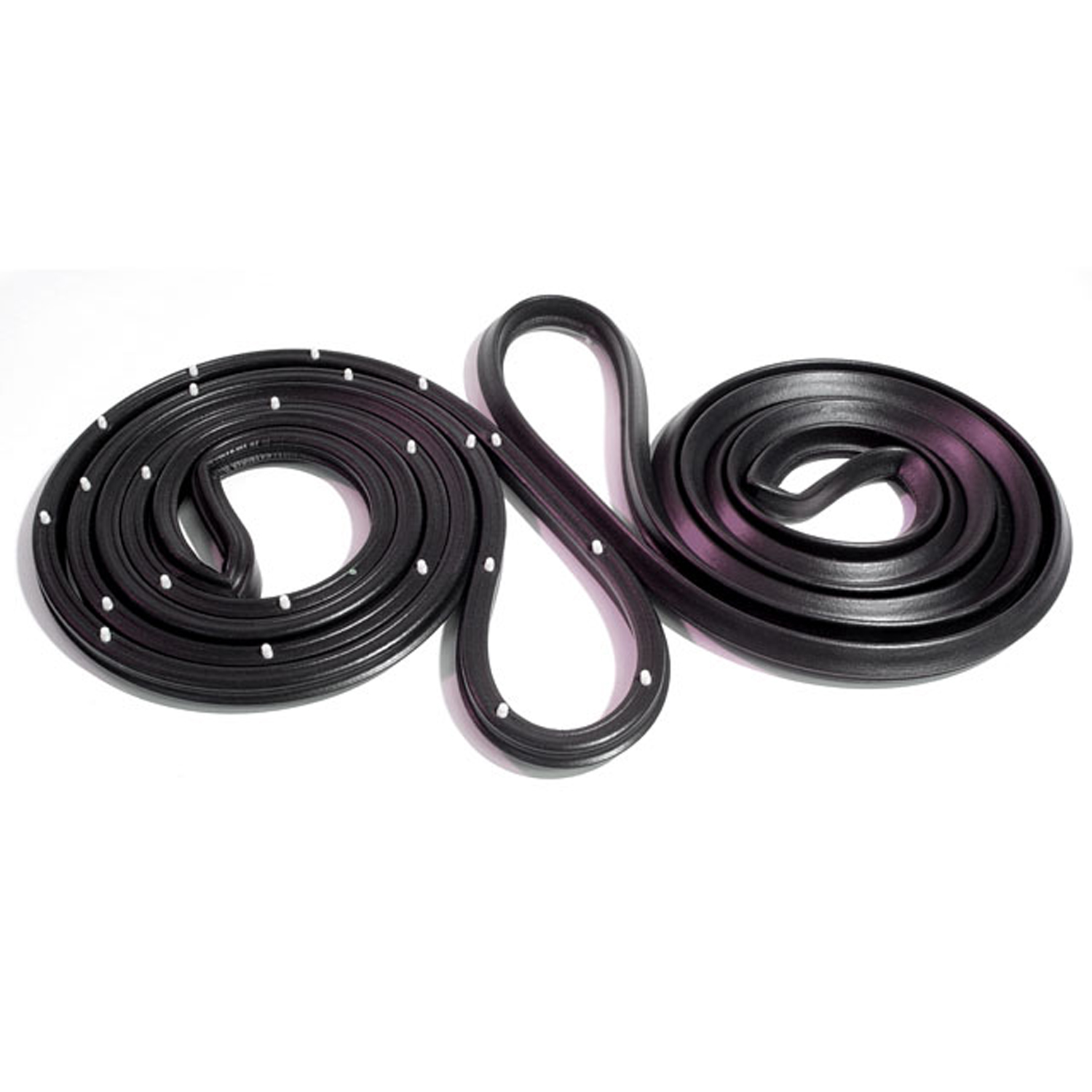 1972 Chevrolet Vega Molded Door Seals with Clips-LM 13Molded Door Seals with Clips. For 2-door hatchbacks (does not fit Monza). Replaces OEM #9883773/4. 139-1/2" long. Pair R&L
1972 Chevrolet Vega Molded Door Seals with Clips-LM 13Molded Door Seals with Clips. For 2-door hatchbacks (does not fit Monza). Replaces OEM #9883773/4. 139-1/2" long. Pair R&L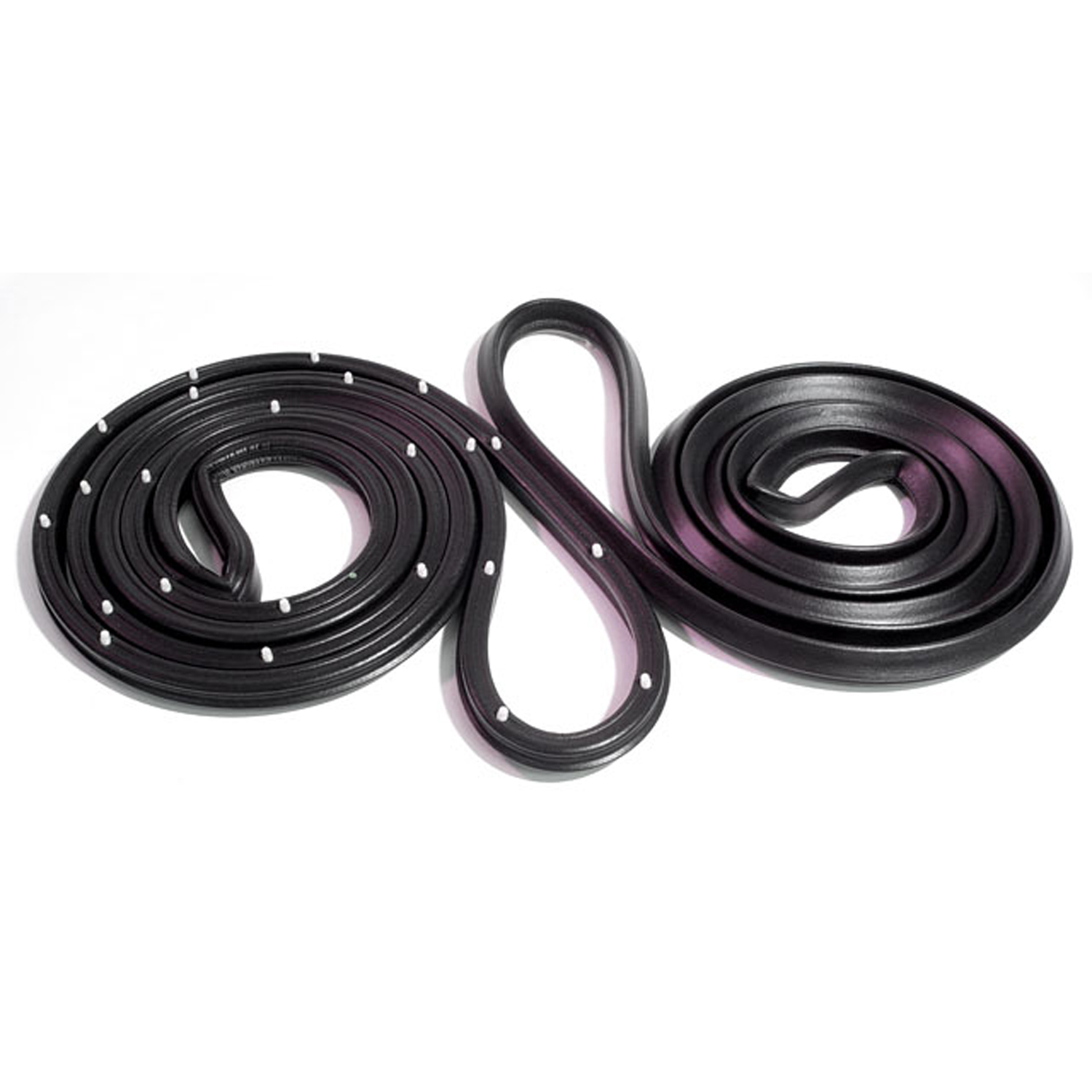 1972 Chevrolet Vega Molded Door Seals with Clips-LM 13-AMolded Door Seals with Clips. For 2-door coupe and wagon (does not fit Monza). Replaces OEM #9883771/2. 147-1/2" long. Pair R&L
1972 Chevrolet Vega Molded Door Seals with Clips-LM 13-AMolded Door Seals with Clips. For 2-door coupe and wagon (does not fit Monza). Replaces OEM #9883771/2. 147-1/2" long. Pair R&L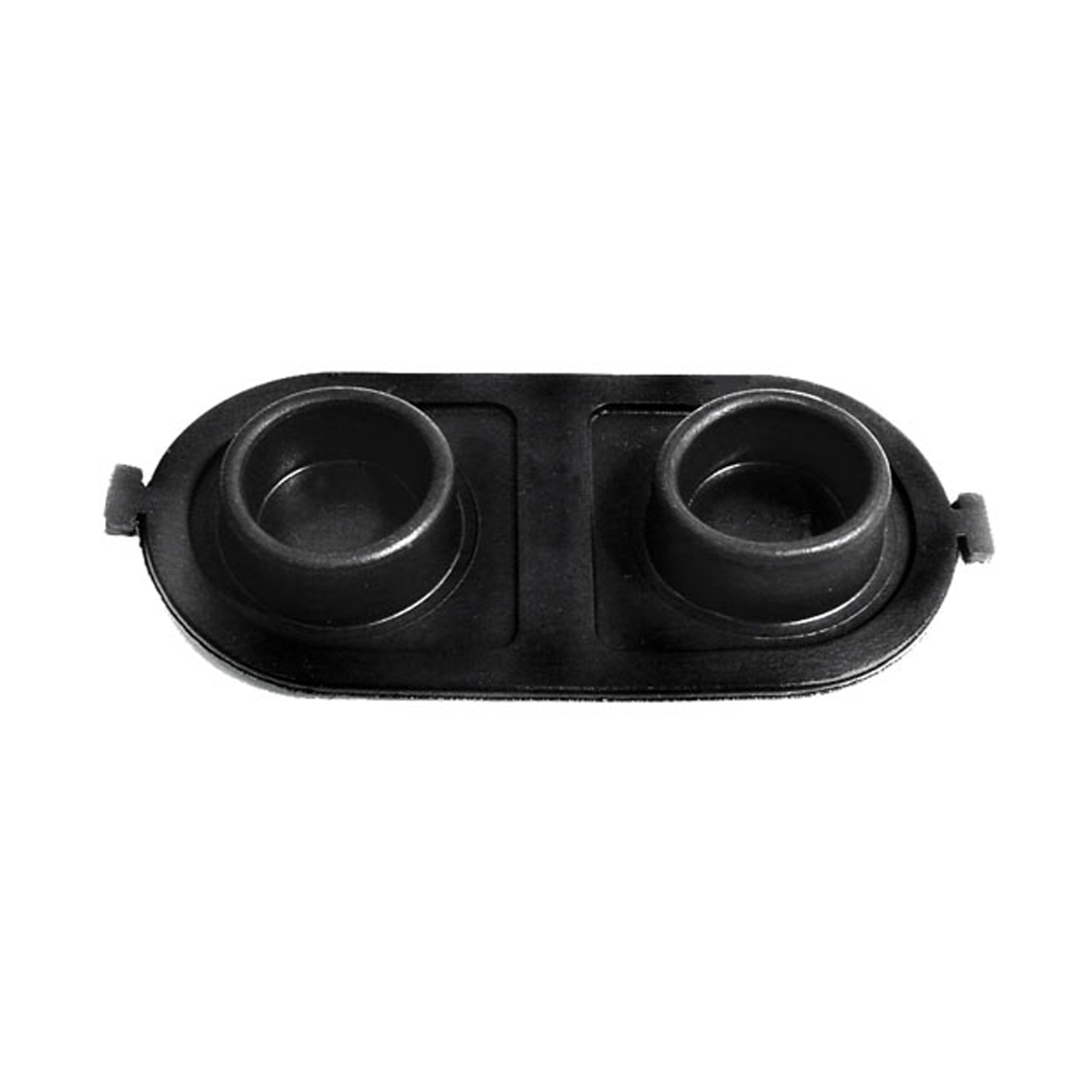 1972 Chevrolet Vega Brake Master Cylinder Cover Seal. Replaces OEM #5470861-RP 2-EBrake Master Cylinder Cover Seal. Replaces OEM #5470861. 5" X 2-1/2". Each
1972 Chevrolet Vega Brake Master Cylinder Cover Seal. Replaces OEM #5470861-RP 2-EBrake Master Cylinder Cover Seal. Replaces OEM #5470861. 5" X 2-1/2". Each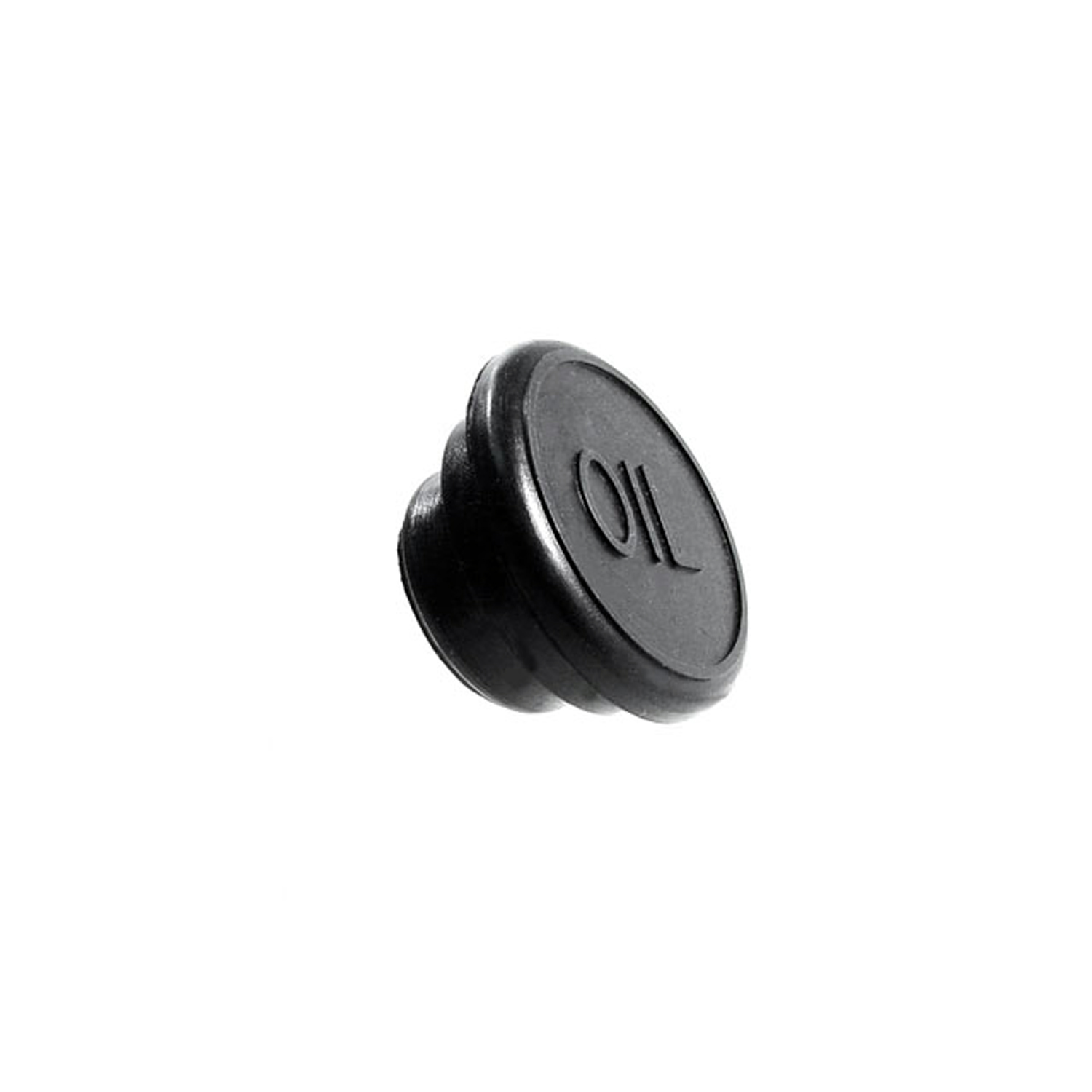 1972 Chevrolet Vega Oil Filler Hole Cap. Made of rubber-RP 8Oil Filler Hole Cap. Made of rubber. Fits a 1-3/16" to 1-1/4" hole. Each
1972 Chevrolet Vega Oil Filler Hole Cap. Made of rubber-RP 8Oil Filler Hole Cap. Made of rubber. Fits a 1-3/16" to 1-1/4" hole. Each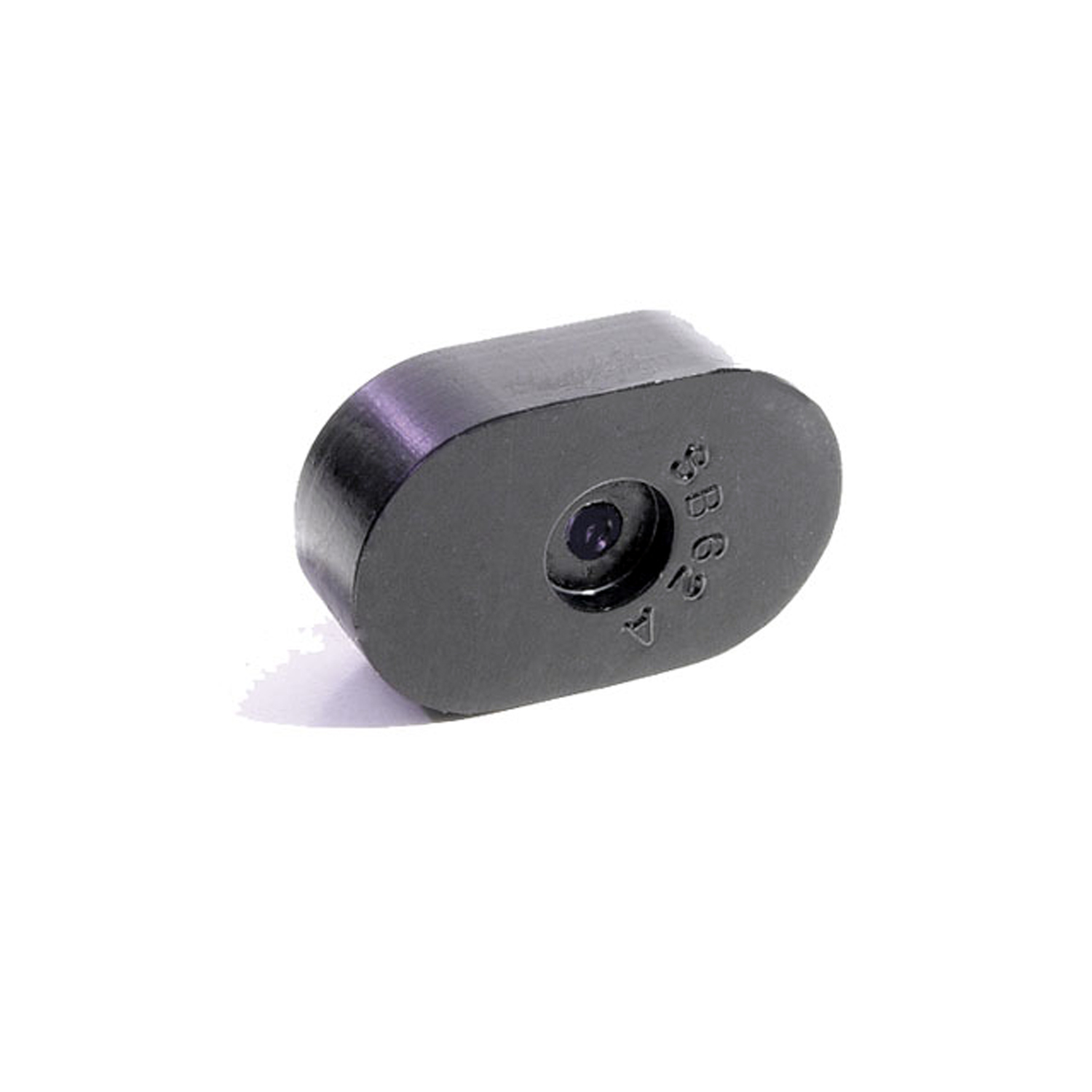 1972 Chevrolet Vega Seat Bumper. Made with steel core like original-SB 62-ASeat Bumper. Made with steel core like original. 1-1/2" long, 7/16" thick. Two used per car. Each
1972 Chevrolet Vega Seat Bumper. Made with steel core like original-SB 62-ASeat Bumper. Made with steel core like original. 1-1/2" long, 7/16" thick. Two used per car. Each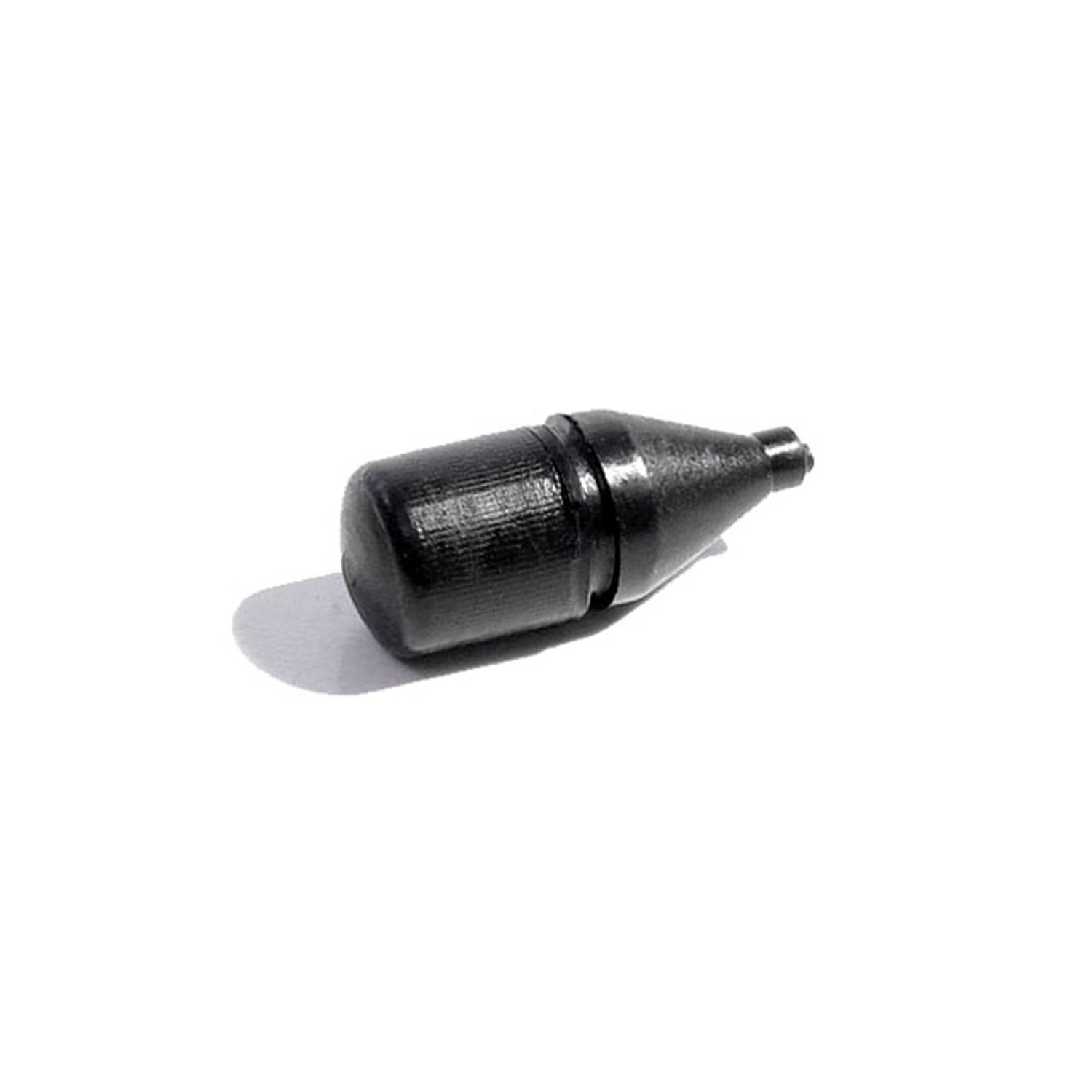 1972 Chevrolet Vega Fuel Door Bumper. 7/8" high, 5/16" O.D. Each-SB 81Fuel Door Bumper. 7/8" high, 5/16" O.D. Each
1972 Chevrolet Vega Fuel Door Bumper. 7/8" high, 5/16" O.D. Each-SB 81Fuel Door Bumper. 7/8" high, 5/16" O.D. Each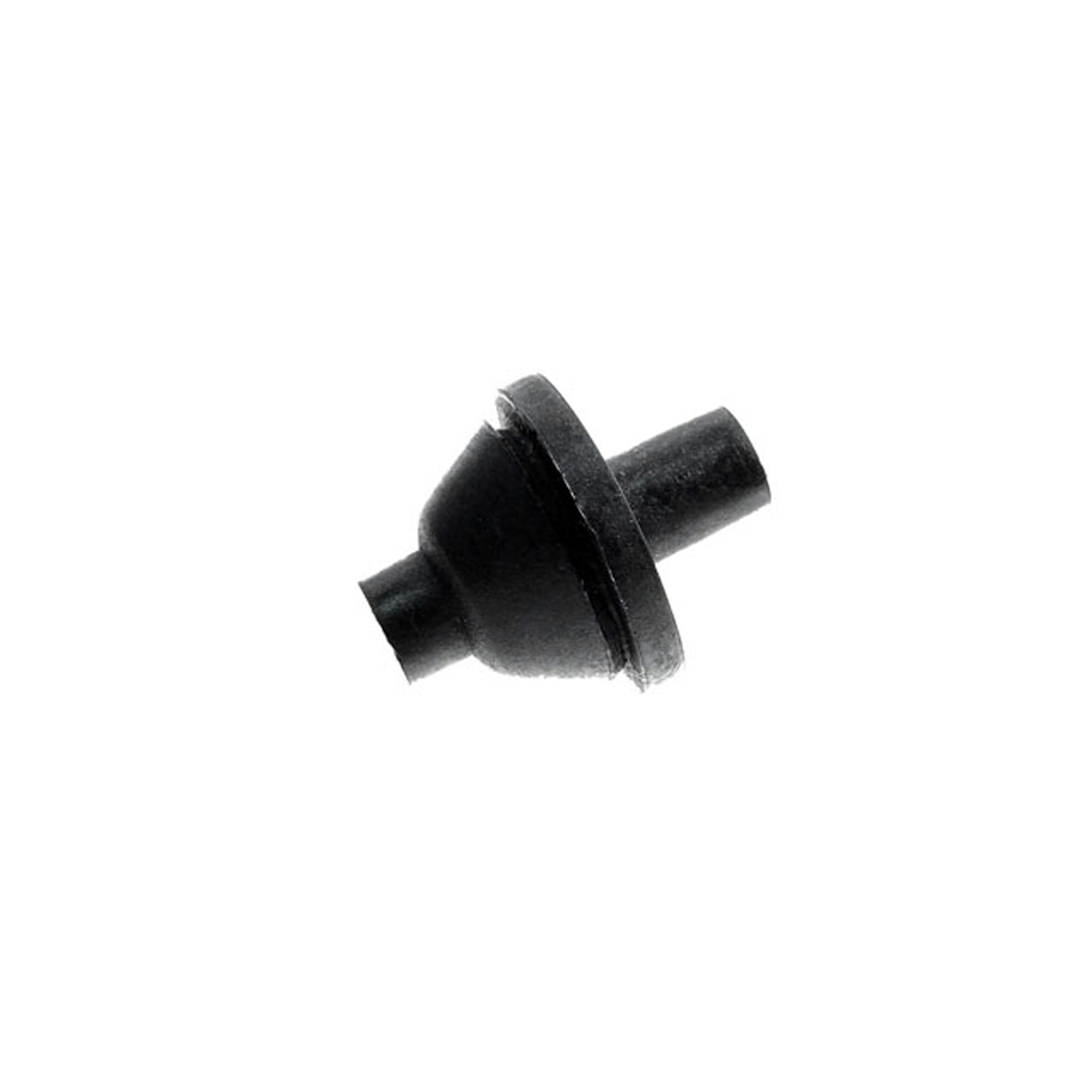 1972 Chevrolet Vega Dash and Firewall Grommet. Single-hole type is for one wire-SM 101Dash and Firewall Grommet. Single-hole type is for one wire. Each
1972 Chevrolet Vega Dash and Firewall Grommet. Single-hole type is for one wire-SM 101Dash and Firewall Grommet. Single-hole type is for one wire. Each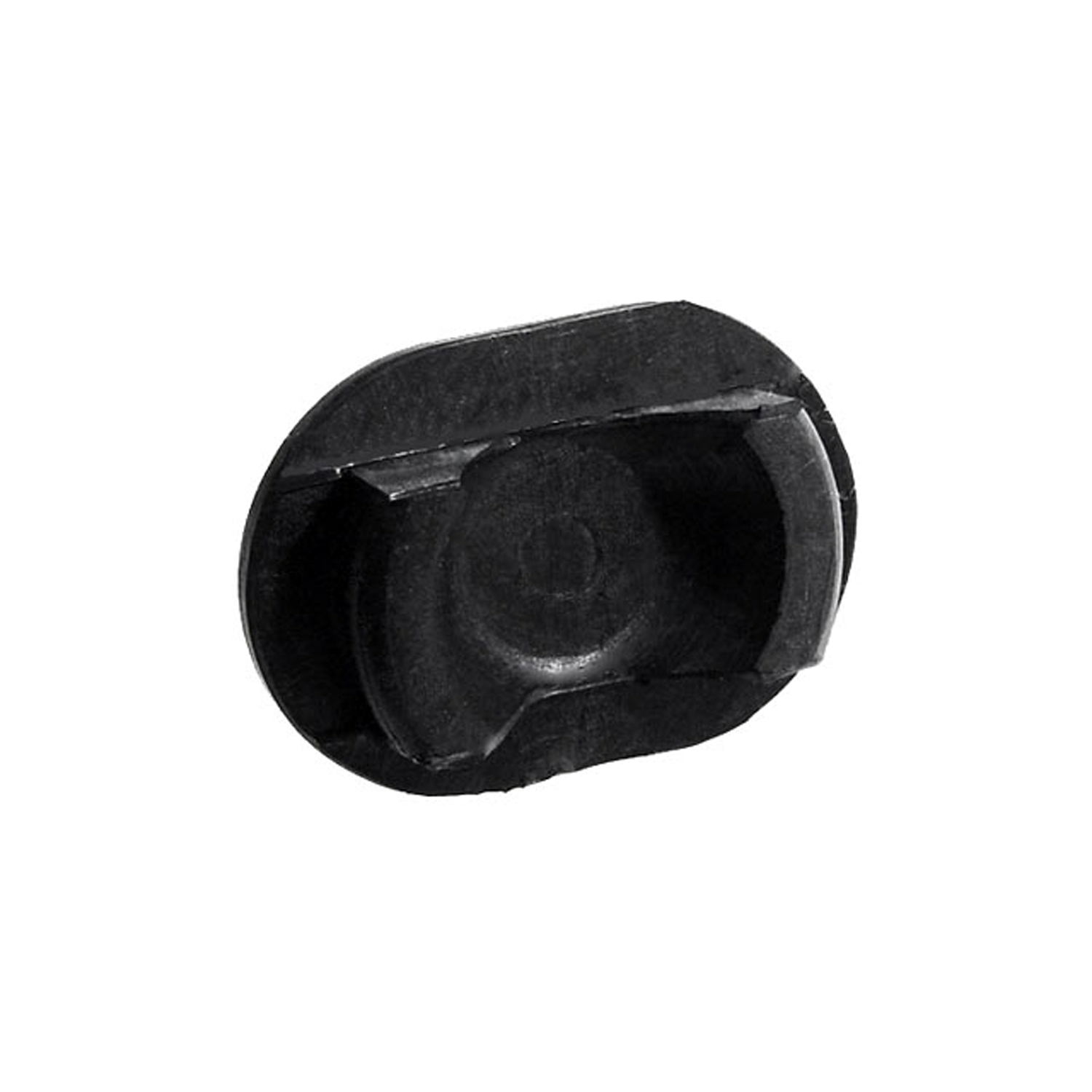 1972 Chevrolet Vega Timing Hole Plug. For 6-cylinder engines. 1-3/4" X 1-1/4"-SM 59Timing Hole Plug. For 6-cylinder engines. 1-3/4" X 1-1/4". Each
1972 Chevrolet Vega Timing Hole Plug. For 6-cylinder engines. 1-3/4" X 1-1/4"-SM 59Timing Hole Plug. For 6-cylinder engines. 1-3/4" X 1-1/4". Each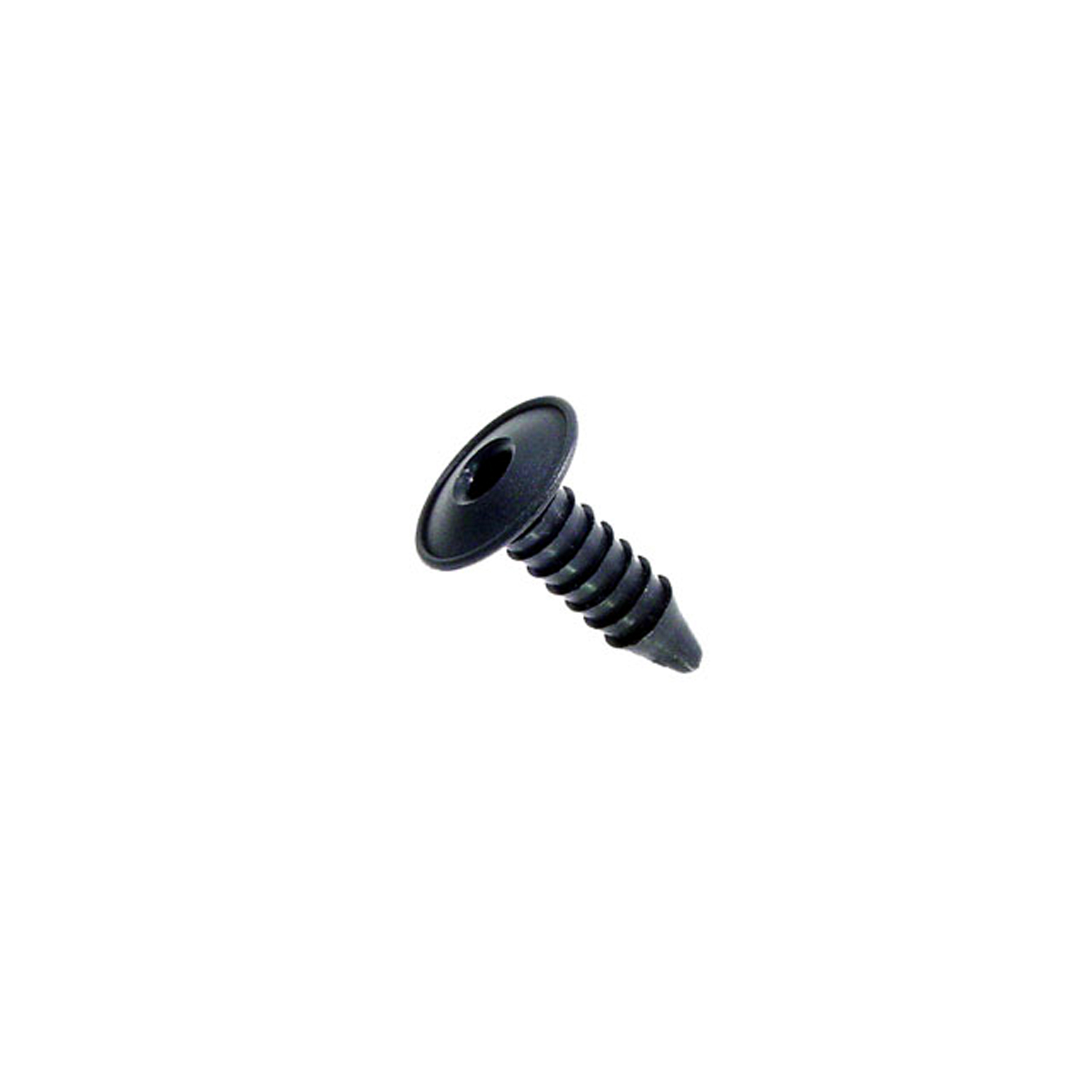 1972 Chevrolet Vega Firewall insulation fastener. 1 in. dia. W head. 1-1/2 in. L-SM 80-AFirewall insulation fastener. 1 in. dia. W head. 1-1/2 in. L. Replaces OEM#'s (GM) 7642589 and (AMC) 4001934. Black. Each.
1972 Chevrolet Vega Firewall insulation fastener. 1 in. dia. W head. 1-1/2 in. L-SM 80-AFirewall insulation fastener. 1 in. dia. W head. 1-1/2 in. L. Replaces OEM#'s (GM) 7642589 and (AMC) 4001934. Black. Each.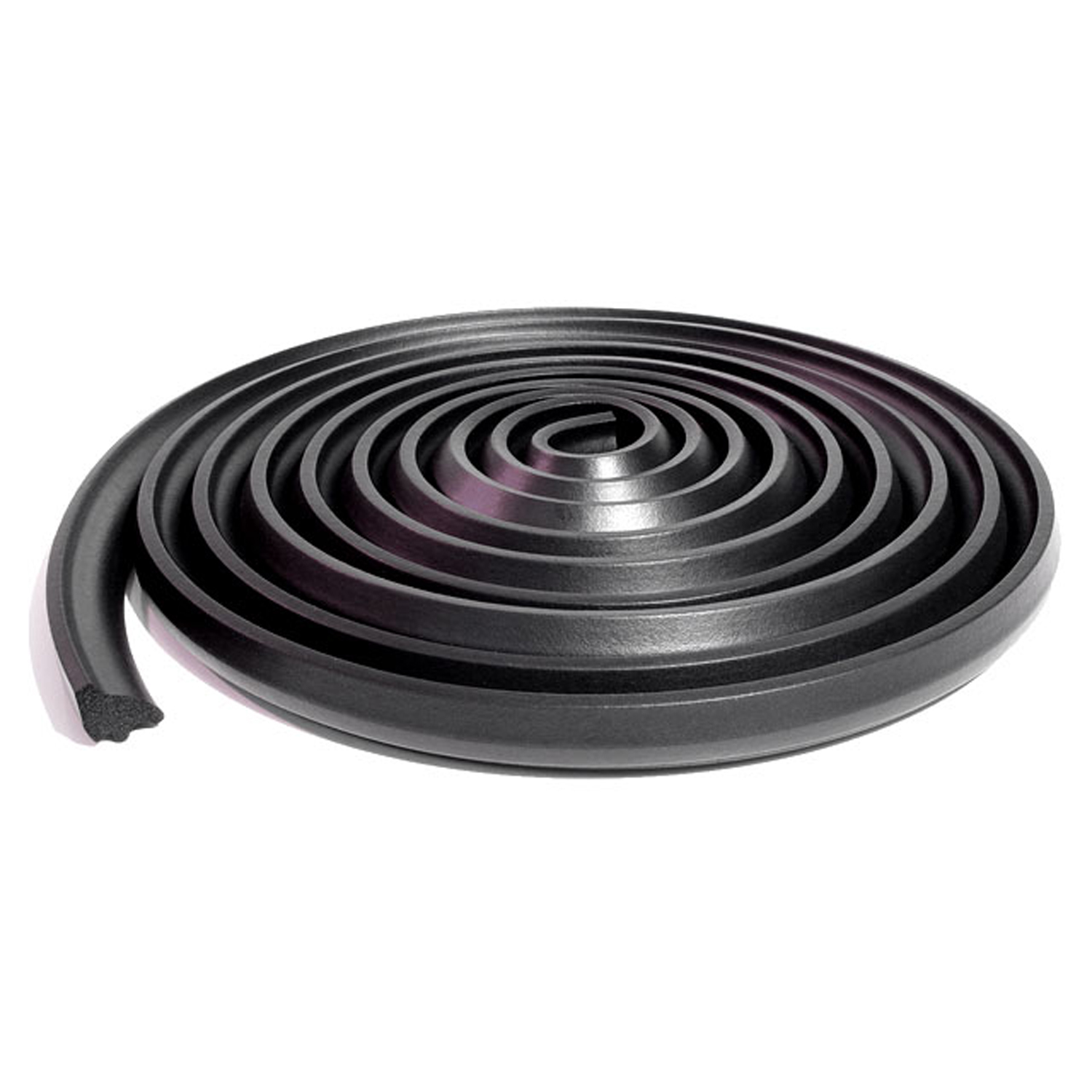 1972 Chevrolet Vega Hatchback seal-TK 46-C/18Hatchback seal. Fits '71-'77 Chevy Vega, '75-'76 Chevy Cosworth Vega and '75-'77 Pontiac Astre. 18 ft. long. Each.
1972 Chevrolet Vega Hatchback seal-TK 46-C/18Hatchback seal. Fits '71-'77 Chevy Vega, '75-'76 Chevy Cosworth Vega and '75-'77 Pontiac Astre. 18 ft. long. Each.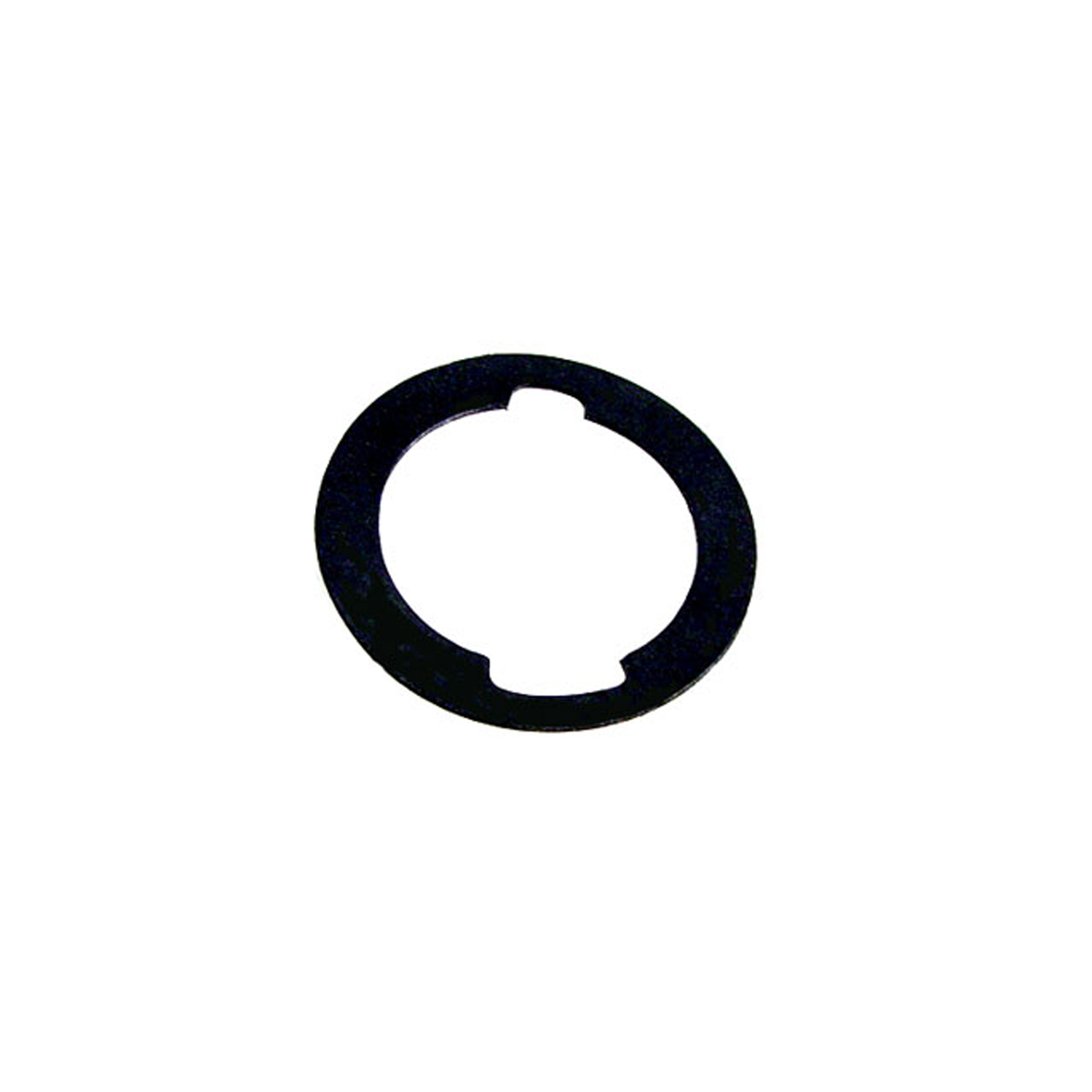 1972 Chevrolet Vega Unbeaded Door and Trunk Lock Gasket. 1-3/16" O.D., 7/8" I.D-UM 1600-100Unbeaded Door and Trunk Lock Gasket. 1-3/16" O.D., 7/8" I.D. Each
1972 Chevrolet Vega Unbeaded Door and Trunk Lock Gasket. 1-3/16" O.D., 7/8" I.D-UM 1600-100Unbeaded Door and Trunk Lock Gasket. 1-3/16" O.D., 7/8" I.D. Each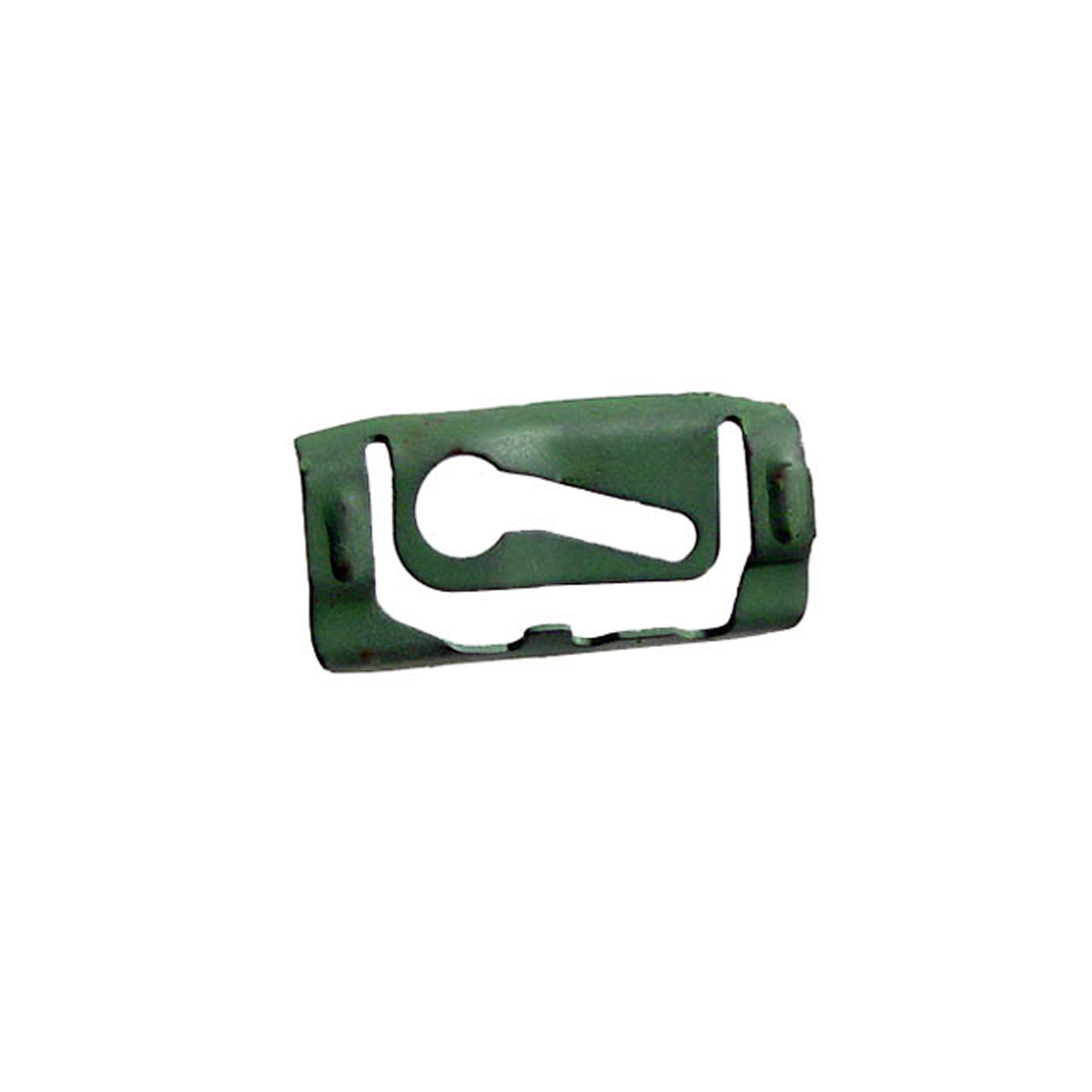 1972 Chevrolet Vega Quarter Window Reveal Molding Clip. Made of Steel-WF 205Quarter Window Reveal Molding Clip. Made of Steel. 1-3/8" X 11/16". Each
1972 Chevrolet Vega Quarter Window Reveal Molding Clip. Made of Steel-WF 205Quarter Window Reveal Molding Clip. Made of Steel. 1-3/8" X 11/16". Each 1972 Chevrolet Vega Rear Windshield Reveal Molding Clip. Made of steel-WF 211Rear Windshield Reveal Molding Clip. Made of steel. 15/16" X 3/4". Each
1972 Chevrolet Vega Rear Windshield Reveal Molding Clip. Made of steel-WF 211Rear Windshield Reveal Molding Clip. Made of steel. 15/16" X 3/4". Each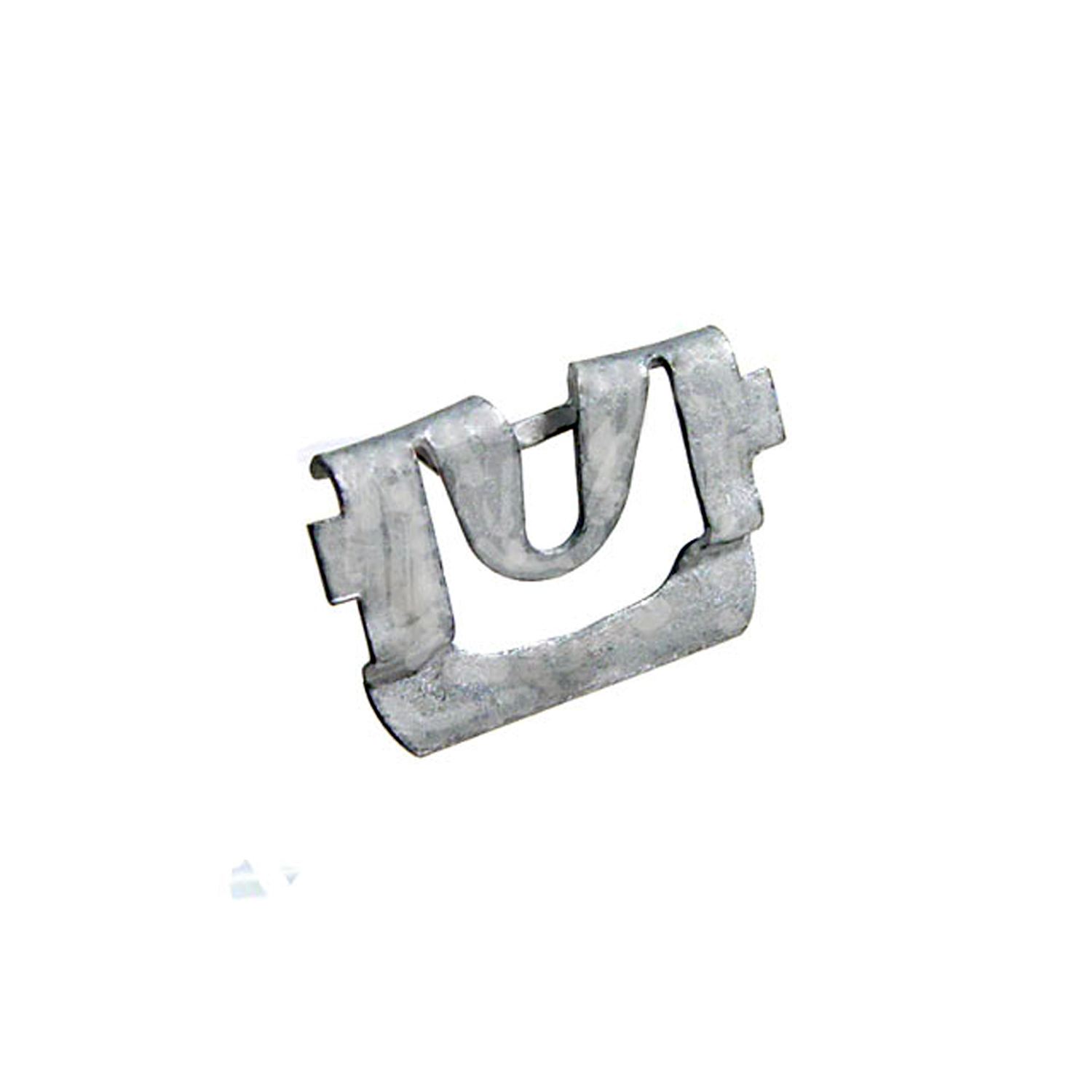 1972 Chevrolet Vega Windshield Reveal Molding Clip. Made of steel-WF 223Windshield Reveal Molding Clip. Made of steel. 1/1/8" X 3/4". Each
1972 Chevrolet Vega Windshield Reveal Molding Clip. Made of steel-WF 223Windshield Reveal Molding Clip. Made of steel. 1/1/8" X 3/4". Each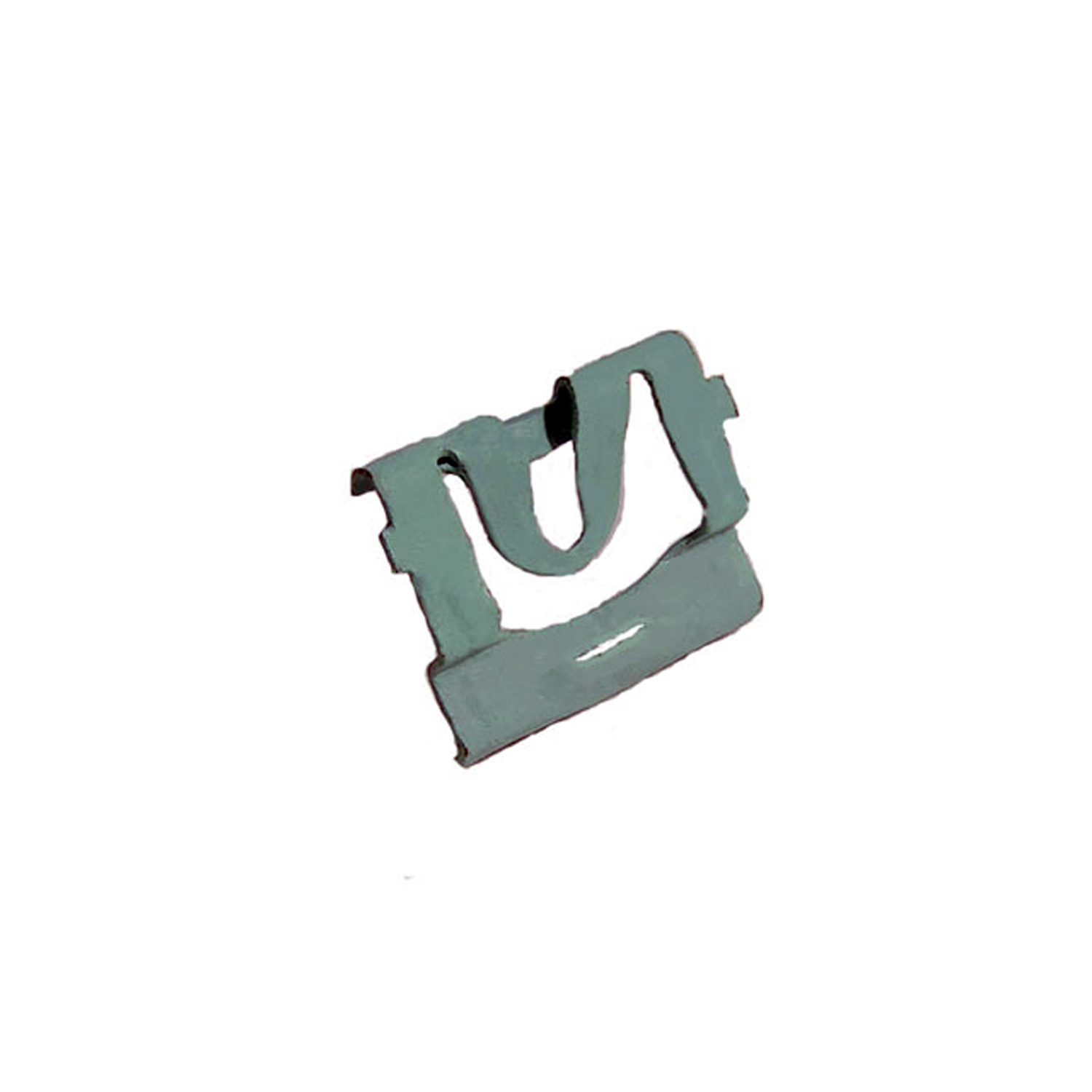 1972 Chevrolet Vega Windshield Reveal Molding Clip. Made of steel-WF 224Windshield Reveal Molding Clip. Made of steel. 1-1/4" X 3/4". Fits many models. Each
1972 Chevrolet Vega Windshield Reveal Molding Clip. Made of steel-WF 224Windshield Reveal Molding Clip. Made of steel. 1-1/4" X 3/4". Fits many models. EachWhy Choose Metro?
For over 100 years, Metro Moulded Parts has been the pinnacle of quality in classic car restoration parts. Our commitment to precision and authenticity in every component ensures a perfect fit and an OEM-level appearance.
- Expert Craftsmanship & Quality: Each part is a testament to our dedication to reliability and perfection, crafted from original designs and thoroughly tested.
- Advanced Technology: We use cutting-edge techniques to create flawless, long-lasting parts that surpass others in performance.
- SuperSoft Sponge – The Ultimate Door Seal: Not only are our door seals 30% softer than competitors', but they're also guaranteed to never leak. They effectively reduce wind and road noise, enhancing your classic car's comfort and driving experience.
- Proudly American: Our parts are a product of American craftsmanship, made in the USA with a spirit of excellence and heritage.
- Unrivaled Warranty: We back our products with a 30-year industry-leading warranty, a testament to our confidence in their quality.
Join us in preserving the legacy of classic cars with parts that are crafted for perfection, not just made.

